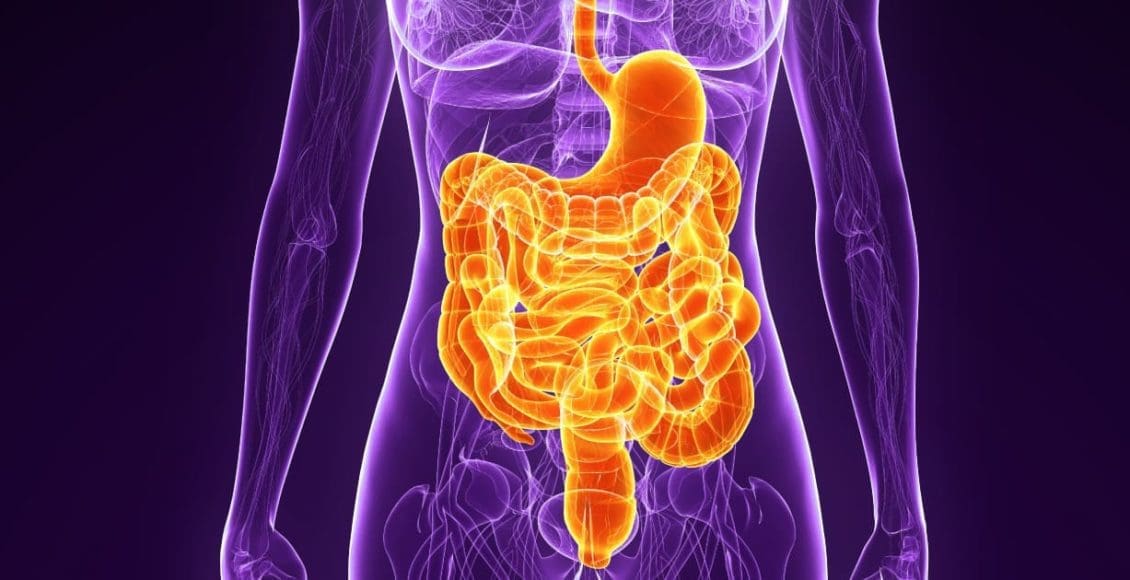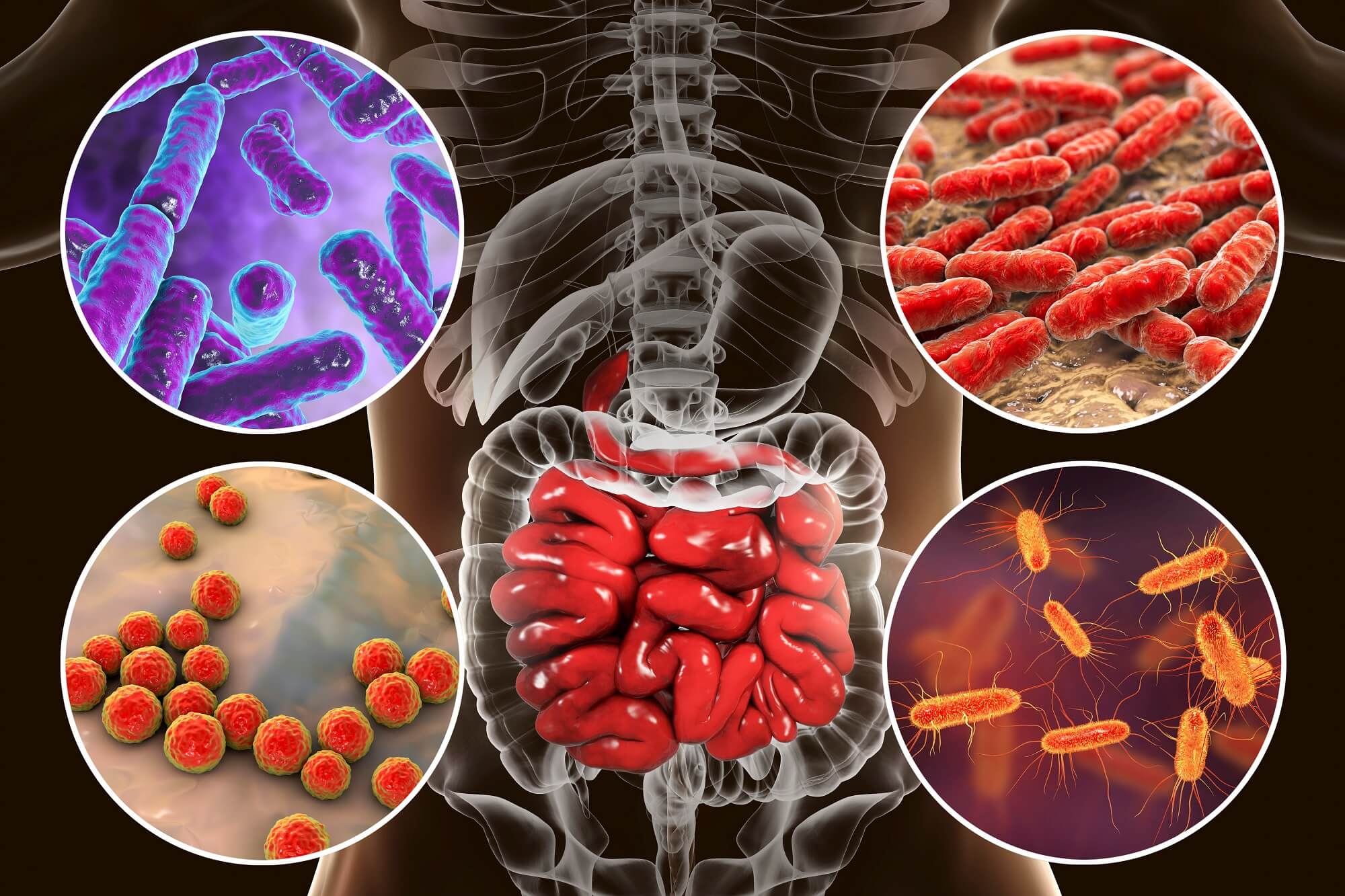Table of Contents
Introduction
The gut system’s main function is to digest food to be turned into nutrients in the body and excrete the waste out of the body. The gastrointestinal tract or GI tract makes sure that the beneficial bacteria are keeping the gut happy and healthy while the intestinal permeability is keeping the toxins and unwanted pathogens out. However, when pathogens do enter the gut can start to disrupt the intestinal wall permeability, it can cause gut inflammation and other chronic illnesses to pop up over the gut and cause a person to be in pain. In this 2 part series, we will be taking a look at ways to keep a healthy gut intact. In Part 1, we took a look at what is the GI tract and its role on the gut. By referring patients to qualified and skilled providers who specialized in gastroenterology services. To that end, and when appropriate, we advise our patients to refer to our associated medical providers based on their examination. We find that education is the key to asking valuable questions to our providers. Dr. Alex Jimenez DC provides this information as an educational service only. Disclaimer
Can my insurance cover it? Yes, in case you are uncertain here is the link to all the insurance providers we cover. If you have any questions, please call Dr. Jimenez at 915-850-0900.
The Roles Of GI Microbiota
Since the gut system is home to the GI tract, research studies have shown that the GI microbiota plays a role in the body’s physiology, metabolism, and nutrition. The gut makes sure that the body is getting the right amount of nutrients while producing beneficial gut flora to keep everything working. Other research studies have found that gut microbiota has been associated with gastrointestinal diseases like IBD (inflammatory bowel disease), SIBO, metabolic disorders, and neurological disorders just to name a few. The gut is connected to the entire body as it plays a functional role in a person’s health as it is one of the main sources where inflammation seems to target the most.
HCTP Therapy
Stem cells* or HCTP (human cellular tissue products) have been used in both international and nationally affiliated clinics and distribution organizations as a form of regenerative therapy treatment. HCTP helps the body boost its own natural healing process by regenerating and repairing damaged cells, diseased tissues, and organs back to their original functioning state. With more and upcoming research discussing the beneficial properties of HCTP, many individuals will begin to feel better from any chronic illnesses that they have encountered and start on their wellness journey.
Ways To Improve GI Microbiota
There are many ways to help improve the GI microbiota in the body. Many individuals will often find ways to improve their lifestyles by making small changes in their daily routines, changing their eating habits, exercising more, and moving around to make their lives better. Research studies have shown that in the gut microbiota the bacteria, fungi, and viruses actually live in a harmonic dynamic equilibrium together in the intestinal tract. The gut needs them in order for the microbiome to thrive and produce good bacteria in order for the gut system to be functional. Other research studies have found that when there is a right balance of microorganisms in the gut, the microbion will improve the body’s mental and physical health as well as other microbiomes.
Stop Taking Antibiotic
Even though antibiotics are beneficial to the body by getting rid of viruses and bacteria, they can cause harm to the gut microbiota. Research studies have shown that when individuals use antibiotics in their system will cause negative effects on their gut microbiota. What antibiotics do to the gut is that they can reduce the bacterial species diversity, cause an altered metabolic activity, and caused a recurrence of viral infections to the gut. Other studies have found that antibiotics can cause microbial dysbiosis and cause the disruption of the gut microbiota. When individuals are taking an excessive amount of antibiotics for chronic illnesses, it can destroy the gut flora and cause even more illnesses to rise, but taking antibiotics in small amounts will get rid of the virus and not harm the GI microbiota.
Berberine
Research studies have shown that when individuals that are suffering from obesity and diabetes due to gut microbial dysbiosis should use berberine. Berberine has been used to dampen the effects of inflammation and lower glucose levels in the body. Other studies have found that berberine has antioxidants and anti-inflammatory properties that can help not only the gut but also provide neuro-protective and cardiovascular-protective effects on the brain and heart.
Probiotics
Known as “living microorganisms”, probiotics are beneficial to the gut as they help get rid of the bad bacteria and feed the good bacteria of the gut. Studies have shown that probiotics contain Lactobacilli, which can help manipulate the intestinal microbial, suppress the pathogens that harm the gut, and stimulate the epithelial cells while fortifying the intestinal barrier. Probiotics are essential to gut health as they are part of the 5R program, which helps reset the gut and helps dampen the effects of inflammation. Other research studies show that the primary job that probiotics provide is that they provide a healthy balance to the body when the bad bacteria start to increase. Probiotics will fight them off and restore balance to the gut and the body.
Conclusion
All in all, finding ways to make sure that the gut stays healthy is by making small changes in the way a person eats, their lifestyles, and exercising can not only help the gut stay healthy but the body as well. When there is inflammation in the gut, it can cause a person to feel bad and if it is not treated right away can develop into chronic inflammation over time. By taking probiotics, eliminating foods that may cause a person inflammation, and eating antioxidant-rich foods can dampen the effects of inflammation to the gut and restore the GI microbiota.
References
Gagliardi, Antonella, et al. “Rebuilding the Gut Microbiota Ecosystem.†International Journal of Environmental Research and Public Health, MDPI, 7 Aug. 2018, https://www.ncbi.nlm.nih.gov/pmc/articles/PMC6121872/.
Guinane, Caitriona M, and Paul D Cotter. “Role of the Gut Microbiota in Health and Chronic Gastrointestinal Disease: Understanding a Hidden Metabolic Organ.†Therapeutic Advances in Gastroenterology, SAGE Publications, July 2013, https://www.ncbi.nlm.nih.gov/pmc/articles/PMC3667473.
Hemarajata, Peera, and James Versalovic. “Effects of Probiotics on Gut Microbiota: Mechanisms of Intestinal Immunomodulation and Neuromodulation.†Therapeutic Advances in Gastroenterology, SAGE Publications, Jan. 2013, https://www.ncbi.nlm.nih.gov/pmc/articles/PMC3539293/.
Jandhyala, Sai Manasa, et al. “Role of the Normal Gut Microbiota.†World Journal of Gastroenterology, Baishideng Publishing Group Inc, 7 Aug. 2015, https://www.ncbi.nlm.nih.gov/pmc/articles/PMC4528021/.
Leonard, Jayne. “10 Research-Backed Ways to Improve Gut Health.†Medical News Today, MediLexicon International, 28 May 2019, https://www.medicalnewstoday.com/articles/325293.
Medical Professionals, Cleveland Clinic. “Probiotics: What Is It, Benefits, Side Effects, Food & Types.†Cleveland Clinic, 9 Mar. 2020, https://my.clevelandclinic.org/health/articles/14598-probiotics.
Ramirez, Jaime, et al. “Antibiotics as Major Disruptors of Gut Microbiota.†Frontiers in Cellular and Infection Microbiology, Frontiers Media S.A., 24 Nov. 2020, https://www.ncbi.nlm.nih.gov/pmc/articles/PMC7732679/.
Zhang, Lichao, et al. “Effects of Berberine on the Gastrointestinal Microbiota.†Frontiers in Cellular and Infection Microbiology, Frontiers Media S.A., 19 Feb. 2021, https://www.ncbi.nlm.nih.gov/pmc/articles/PMC7933196.
Zhang, Sheng, and De-Chang Chen. “Facing a New Challenge: The Adverse Effects of Antibiotics on Gut Microbiota and Host Immunity.†Chinese Medical Journal, Wolters Kluwer Health, 20 May 2019, https://www.ncbi.nlm.nih.gov/pmc/articles/PMC6511407/.
Zhang, Yifei, et al. “Gut Microbiome-Related Effects of Berberine and Probiotics on Type 2 Diabetes (the Premote Study).†Nature News, Nature Publishing Group, 6 Oct. 2020, https://www.nature.com/articles/s41467-020-18414-8.
Disclaimer
Post Disclaimer
Professional Scope of Practice *
The information herein on "An Overview Of Beneficial Ways To Improve GI | Part 2" is not intended to replace a one-on-one relationship with a qualified health care professional or licensed physician and is not medical advice. We encourage you to make healthcare decisions based on your research and partnership with a qualified healthcare professional.
Blog Information & Scope Discussions
Welcome to El Paso's Premier Wellness, Personal Injury Care Clinic & Wellness Blog, where Dr. Alex Jimenez, DC, FNP-C, a Multi-State board-certified Family Practice Nurse Practitioner (FNP-BC) and Chiropractor (DC), presents insights on how our multidisciplinary team is dedicated to holistic healing and personalized care. Our practice aligns with evidence-based treatment protocols inspired by integrative medicine principles, similar to those found on this site and our family practice-based chiromed.com site, focusing on restoring health naturally for patients of all ages.
Our areas of multidisciplinary practice include Wellness & Nutrition, Chronic Pain, Personal Injury, Auto Accident Care, Work Injuries, Back Injury, Low Back Pain, Neck Pain, Migraine Headaches, Sports Injuries, Severe Sciatica, Scoliosis, Complex Herniated Discs, Fibromyalgia, Chronic Pain, Complex Injuries, Stress Management, Functional Medicine Treatments, and in-scope care protocols.
Our information scope is multidisciplinary, focusing on musculoskeletal and physical medicine, wellness, contributing etiological viscerosomatic disturbances within clinical presentations, associated somato-visceral reflex clinical dynamics, subluxation complexes, sensitive health issues, and functional medicine articles, topics, and discussions.
We provide and present clinical collaboration with specialists from various disciplines. Each specialist is governed by their professional scope of practice and their jurisdiction of licensure. We use functional health & wellness protocols to treat and support care for musculoskeletal injuries or disorders.
Our videos, posts, topics, and insights address clinical matters and issues that are directly or indirectly related to our clinical scope of practice.
Our office has made a reasonable effort to provide supportive citations and has identified relevant research studies that support our posts. We provide copies of supporting research studies upon request to regulatory boards and the public.
We understand that we cover matters that require an additional explanation of how they may assist in a particular care plan or treatment protocol; therefore, to discuss the subject matter above further, please feel free to ask Dr. Alex Jimenez, DC, APRN, FNP-BC, or contact us at 915-850-0900.
We are here to help you and your family.
Blessings
Dr. Alex Jimenez DC, MSACP, APRN, FNP-BC*, CCST, IFMCP, CFMP, ATN
email: [email protected]
Multidisciplinary Licensing & Board Certifications:
Licensed as a Doctor of Chiropractic (DC) in Texas & New Mexico*
Texas DC License #: TX5807, Verified: TX5807
New Mexico DC License #: NM-DC2182, Verified: NM-DC2182
Multi-State Advanced Practice Registered Nurse (APRN*) in Texas & Multi-States
Multistate Compact APRN License by Endorsement (42 States)
Texas APRN License #: 1191402, Verified: 1191402 *
Florida APRN License #: 11043890, Verified: APRN11043890 *
License Verification Link: Nursys License Verifier
* Prescriptive Authority Authorized
ANCC FNP-BC: Board Certified Nurse Practitioner*
Compact Status: Multi-State License: Authorized to Practice in 40 States*
Graduate with Honors: ICHS: MSN-FNP (Family Nurse Practitioner Program)
Degree Granted. Master's in Family Practice MSN Diploma (Cum Laude)
Dr. Alex Jimenez, DC, APRN, FNP-BC*, CFMP, IFMCP, ATN, CCST
My Digital Business Card
RN: Registered Nurse
APRNP: Advanced Practice Registered Nurse
FNP: Family Practice Specialization
DC: Doctor of Chiropractic
CFMP: Certified Functional Medicine Provider
MSN-FNP: Master of Science in Family Practice Medicine
MSACP: Master of Science in Advanced Clinical Practice
IFMCP: Institute of Functional Medicine
CCST: Certified Chiropractic Spinal Trauma
ATN: Advanced Translational Neutrogenomics








 Again, We Welcome You.
Again, We Welcome You.
Comments are closed.